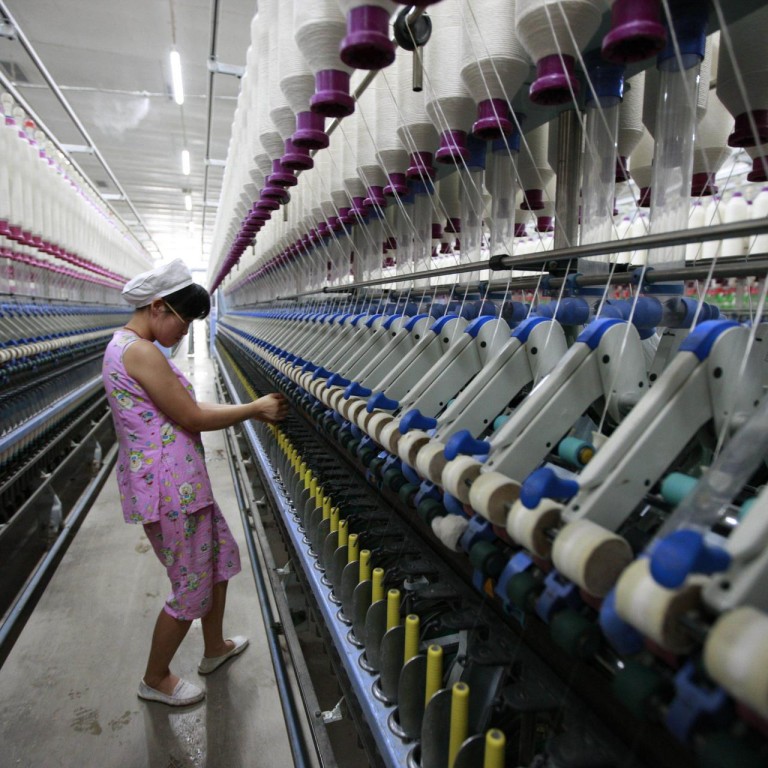
China HSBC PMI dips to 11-month low as official figure picks up
Official PMI shows mainland factories busier, but HSBC survey finds small firms struggling
Mainland manufacturing is accelerating following the government's steps to stabilise the economy but smaller exporters are still struggling, two separate surveys show.
The official purchasing managers index (PMI) climbed to 50.3 in July from 50.1 in June, as factories received more new orders, said the National Bureau of Statistics yesterday. A reading above 50 indicates expansion.
But HSBC's PMI, focused on smaller firms, recorded an 11-month low of 47.7 in July, compared with 48.2 in June, partly as a result of the quickest job shedding since March 2009. Exporters reported declines in new sales to all major trade partners.
The discrepancy between the PMIs underscores the uncertainty in the economic outlook.
In the United States, the Institute for Supply Management said its index of national factory activity rose to 55.4 in July, its highest level since June 2011.
That drove the Standard & Poor's 500 stock index above 1,700 points for the first time.
"With the interbank turmoil now behind us and Premier Li Keqiang committed to delivering the 7.5 per cent growth target in 2013 and an average 7 per cent growth before 2020, sentiment and growth outlook have been improved," said Bank of America Merrill Lynch in a research note.
Top leaders vowed at a meeting this week to keep growth stable and did not mention property curbs, which was interpreted by the market as signal for more accommodative policies.
Commerce Minister Gao Hucheng said the annual 8 per cent growth target for foreign trade is achievable this year, despite some "difficulties and pressure". The size of foreign direct investment is also expected to be slightly higher than last year, while China's non-financial outbound investment will keep rising rapidly, Gao told Xinhua.
Some economists are more cautious about a recovery.
Mizuho Securities' chief Greater China economist Shen Jianguang underlined the pressure on jobs.
"We expect economic downturn to have continued in July. In particular, the labour market is coming under pressure as the economy loses steam," said Shen.
The employment sub-index under the official PMI, which has more samples and heavier weighting for bigger manufacturers, has stayed below 50 for 14 straight months.
Many economists, including Nomura's Zhang Zhiwei and ANZ's Liu Li-Gang, questioned the accuracy of the official PMI, calling the result "puzzling", particularly since the central bank has kept liquidity tight in recent months.
Meanwhile, Europe's factories delivered more signs the region is leaving recession behind. PMIs showed output in British factories surged in July while industrial activity in the euro zone rose for the first time in two years.
Additional reporting by Jane Cai

